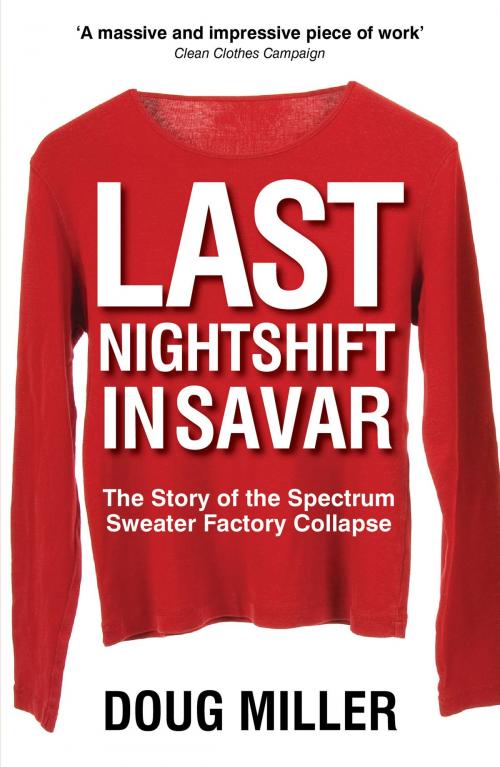Last Nightshift in Savar
The Story of the Spectrum Sweater Factory Collapse
Nonfiction, Science & Nature, Technology, Industrial Health & Safety, Business & Finance, Industries & Professions, Industries| Author: | Doug Miller | ISBN: | 9780857160430 |
| Publisher: | McNidder and Grace Limited | Publication: | July 1, 2012 |
| Imprint: | McNidder and Grace | Language: | English |
| Author: | Doug Miller |
| ISBN: | 9780857160430 |
| Publisher: | McNidder and Grace Limited |
| Publication: | July 1, 2012 |
| Imprint: | McNidder and Grace |
| Language: | English |
In April 2005 a factory making sweaters for the European market collapsed like a pack of cards during the nightshift in Savar near Dhaka, Bangladesh. The circumstances of this disaster, which caused the deaths of 64 clothing workers and injured a further 84, proved to be a final straw for trade unionists and NGO activists who had long been concerned about the state of factory safety and the inadequacies of social protection in the Ready Made Garment industry in the South East Asian country. Last Nightshift in Savar presents a detailed account of the national and international campaign efforts to bring the owner and his multinational buyers to book. It is also an account of the emergence of two quite different but replicable buyer approaches to the provision of relief for workers in such calamitous circumstances, which hopefully sheds light on some of the contradictions of corporate social responsibility in the globalised economy in which we live today. Finally, it is the story of the efforts of the international trade union, and NGO movement and of two men, in particular, to drive home change in compensation for industrial injury and fatality in the less developed world.
In April 2005 a factory making sweaters for the European market collapsed like a pack of cards during the nightshift in Savar near Dhaka, Bangladesh. The circumstances of this disaster, which caused the deaths of 64 clothing workers and injured a further 84, proved to be a final straw for trade unionists and NGO activists who had long been concerned about the state of factory safety and the inadequacies of social protection in the Ready Made Garment industry in the South East Asian country. Last Nightshift in Savar presents a detailed account of the national and international campaign efforts to bring the owner and his multinational buyers to book. It is also an account of the emergence of two quite different but replicable buyer approaches to the provision of relief for workers in such calamitous circumstances, which hopefully sheds light on some of the contradictions of corporate social responsibility in the globalised economy in which we live today. Finally, it is the story of the efforts of the international trade union, and NGO movement and of two men, in particular, to drive home change in compensation for industrial injury and fatality in the less developed world.















